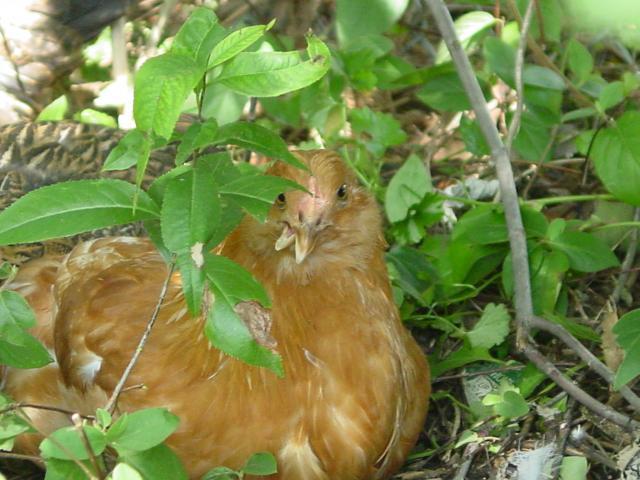I wasn't condoning commercial debeaking (I find it very distasteful, as well as most of the other standard practices in commercial poultry houses), just comparing the the beak length- as most people have seen at some point a commercially debeaked hen. They can eat, but need deeper troughs- and do need to learn. They can in general eat much better than a bird with a bad cross beak. IMO options for a severe cross beak--- 1) debeak and it can live a fairly normal life- but should be monitored to make sure it can eat (like pick it up and assess weight weekly and check the crop at night to make sure it is full). 2) Be a chicken servant- hand feed multiple times a day, dremmel a couple of times a month, experiment with food texture and deepness, knowing that the problem will gradually worsen and the lower beak TM joints are getting arthritis 3) Cull
Most of the severely cross beaked birds I have heard about eventually starve as the owners do not have the time to devote to feeding them. The story goes as such: bird Z was always smaller than the other, but he/she had spunk and spirit and was always at the food bowl, I didn't have the heart to cull him/her as they looked like they were doing ok. Then the bird dies, and the person is sad. What happens is the bird is always at the food bowl trying to eat, but only gets a small amount, doesn't grow normally and eventually dies- spending most of it's short life constantly hungry with food in front of it. The rare bird with cross beak that does well to adult hood is the exception, not the standard. Again, I know there are plenty of people out there with living adult birds with cross beak- but MOST starve, or are culled.
This is harsh, but I truly think that any of the above 3 options are appropriate- depending on what kind of time one has to devote to each individual bird. Option 1 & 3 are the easiest on the owner long term. Option 2 is what many pick, but end up with a stunted skinny bird- that doesn't do well long term- if it makes it to adult hood.
I had a cross beak that was debeaked at about 2 months. It was stunted from it's first 8 weeks of life when it was struggling, but it did ok after the debeaking- I wish I could say I still have him- but he turned into a rooster- and I didn't want his genes passed on- as I did not know whether the cross beak was genetic or trauma. I don't regret having debeaked him (under anesthesia, and he got pain meds afterwards)- as he didn't need help any more to eat- which was the goal.
Quote:





